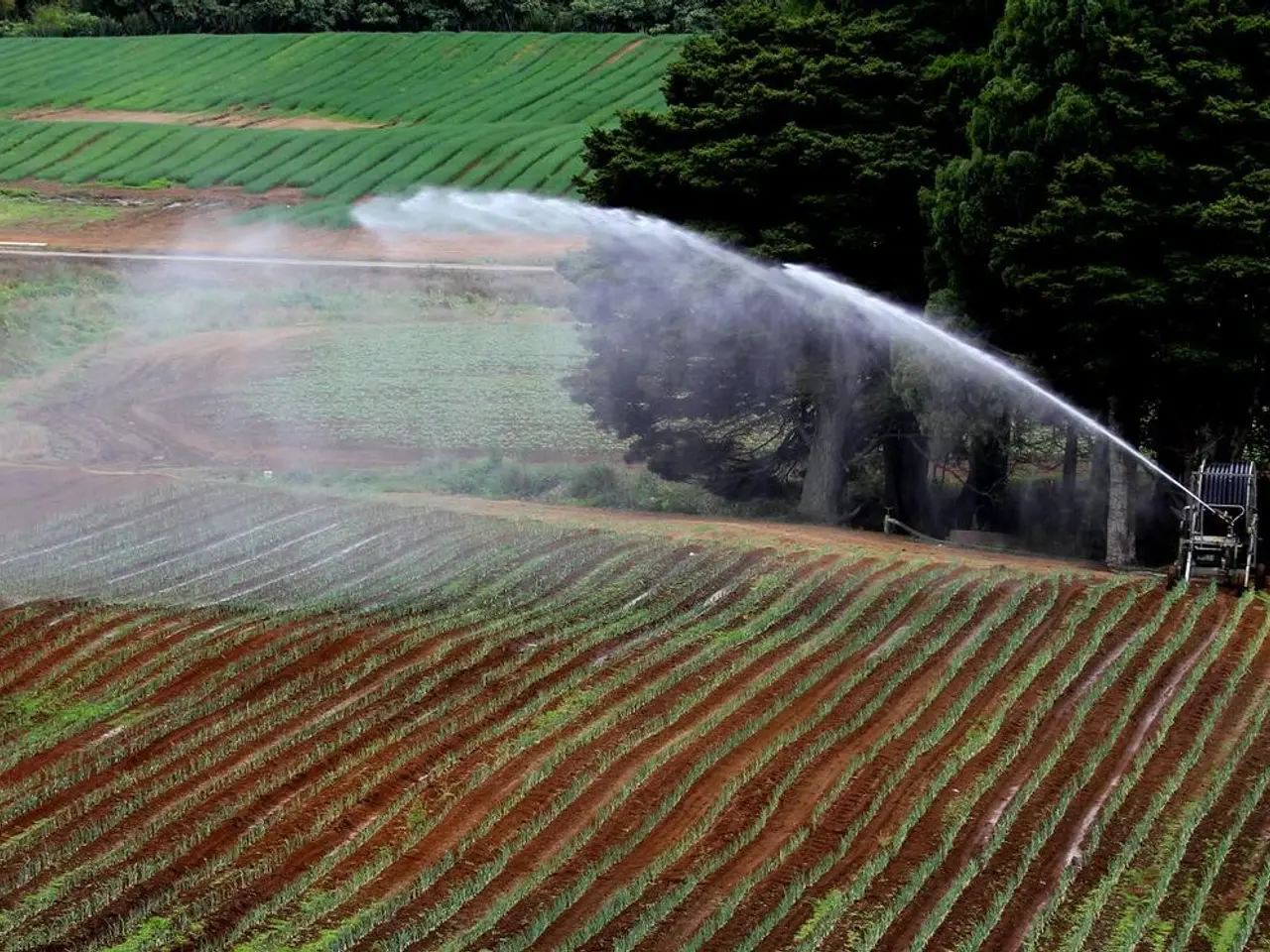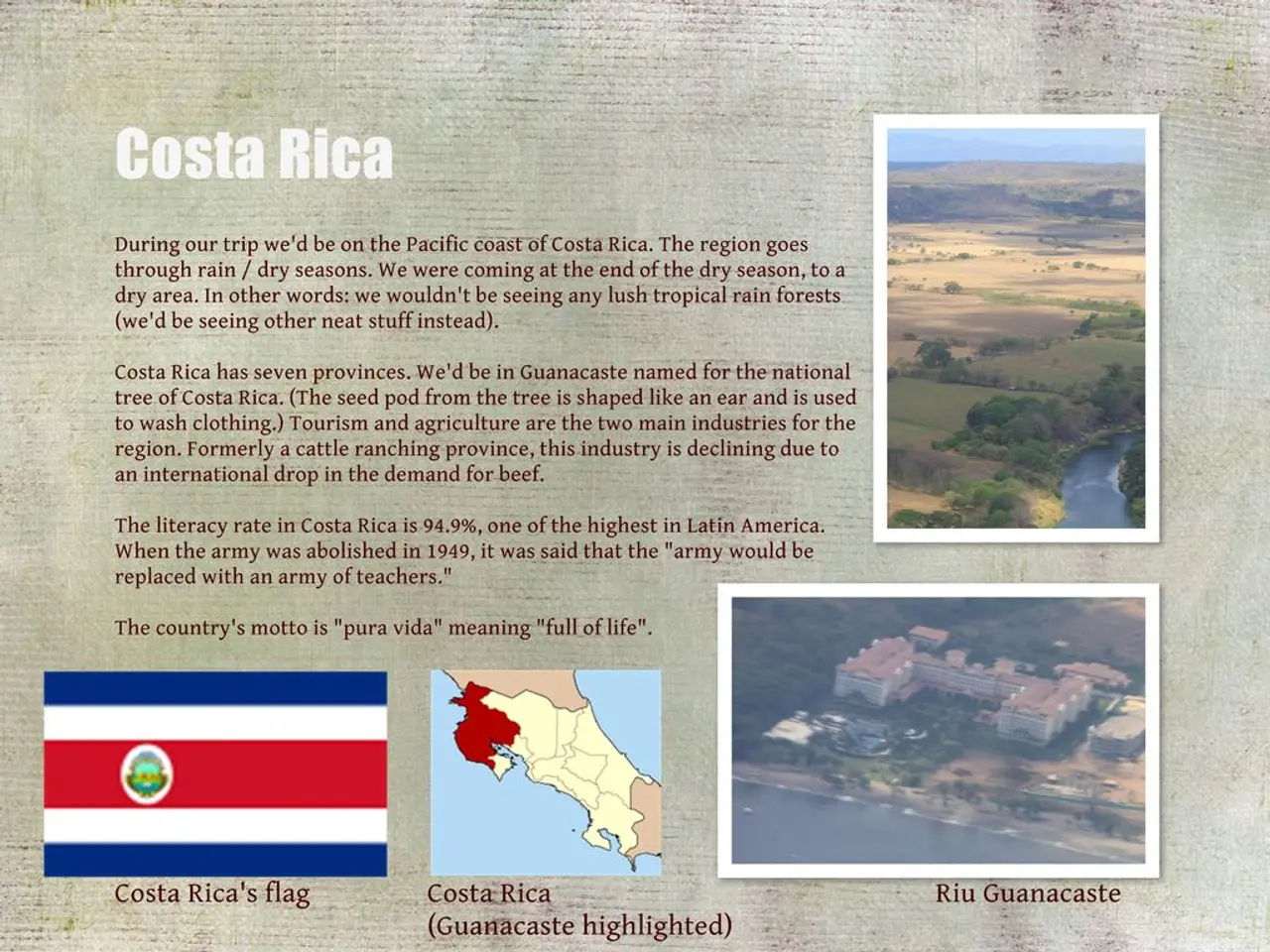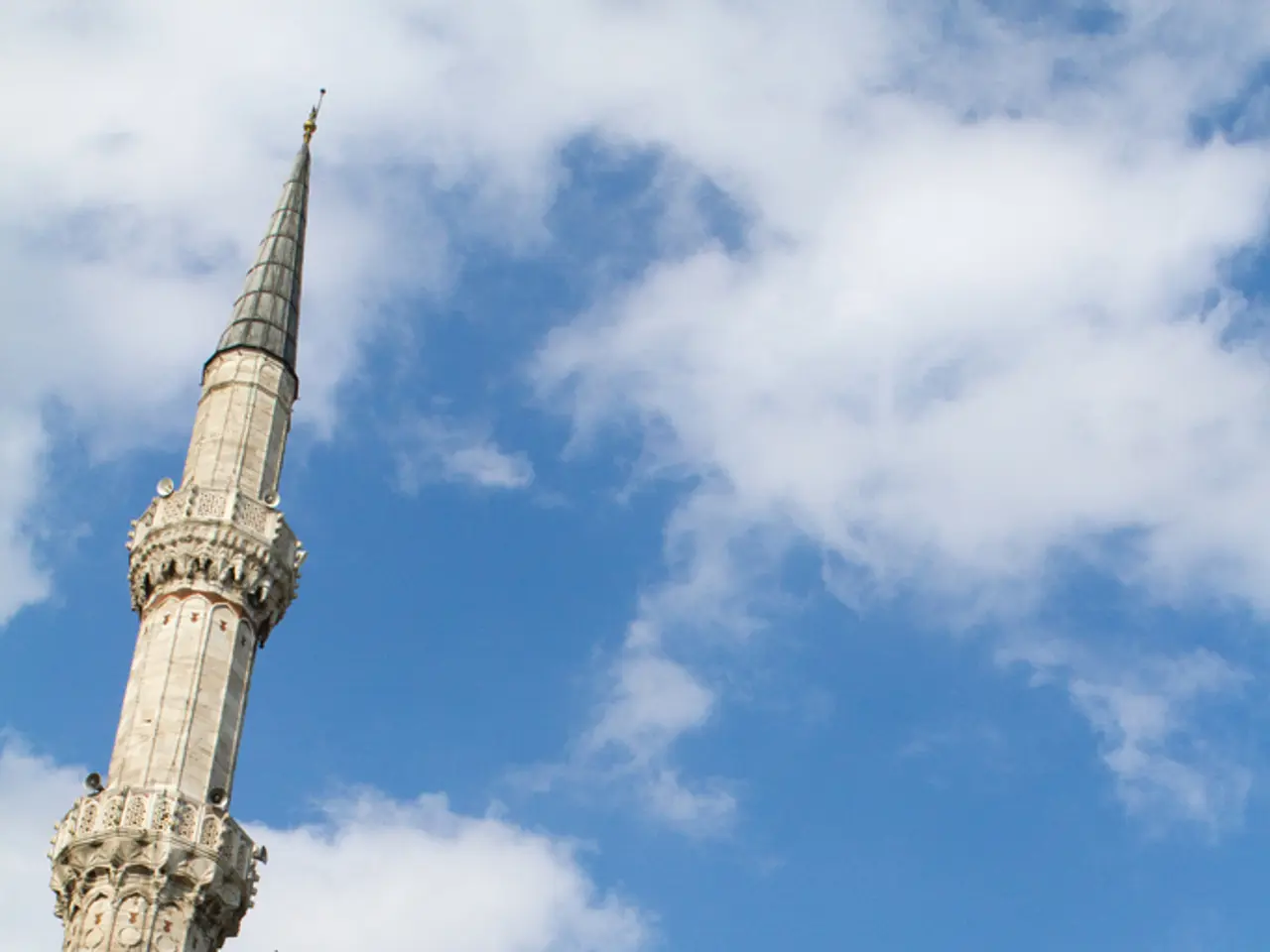Malawi's Energy Minister, Ibrahim Matola, Heads Malawian Team for Information Swap on Battery Energy Storage Systems (BESS) in India, Aided by Global Energy Access Partnership Programme (GEAPP)
In a significant development, Malawi, under the leadership of Honourable Ibrahim Imed Matola, Minister of Energy, is collaborating with India on a 20 MW Battery Energy Storage System (BESS) project. This initiative, located at the Kenengo Substation in Lilongwe, is supported by the Global Energy Alliance for People and Planet (GEAPP) and its partners IndiGrid and AmpereHour Energy.
The project, a key component of Malawi’s goal to adopt clean energy innovations such as battery storage deployment, digital grid solutions, and policy reforms for urban energy, aligns with Malawi’s aim for a just and inclusive transition to renewable energy and complements its national objective of electrifying an additional 2.7 million households under the broader Mission 300[1][2].
Recently, Minister Matola led a delegation to India to learn from India’s energy transition experience. The visit included a tour of the Kilokari BESS project in Delhi — the largest in South Asia — to explore replicating similar systems in Malawi. This South-South cooperation initiative emphasizes tailored climate strategies and clean energy adoption relevant to Malawi’s context[3].
Malawi’s electrification plans are part of a wider regional effort in East Africa to increase access to reliable and renewable energy. Malawi already relies on over 70% renewable energy in its grid capacity, but the BESS project and related reforms seek to improve grid stability and facilitate integration of variable renewable sources, thereby supporting sustainable economic growth under Malawi’s Vision 2063.
India's renewable energy efforts, including massive investments in grid integration and battery storage totaling billions of dollars, provide a rich reference point for Malawi. India’s deployment of around 1,500+ MWh of battery storage and ambitious targets such as generating 500 GW of non-fossil capacity by 2030 illustrate the scale of innovation Malawi intends to study and adopt[4].
The Global Energy Alliance for People and Planet (GEAPP) is an alliance of philanthropy, governments in emerging and developed economies, and technology, policy, and financing partners. Its mission is to enable Low- and Middle-Income Countries (LMICs) to shift to a clean energy, pro-growth model that accelerates universal energy access and inclusive economic growth, while supporting the global community to meet critical climate goals during the next decade.
GEAPP is supporting Malawi's 20 MW BESS project in collaboration with the Electricity Supply Corporation of Malawi (ESCOM). The Digitalization of Utilities for Energy Transition (DUET) program by GEAPP in India aims to co-create, co-design, and deploy tailored systems to support Indian distribution companies (DISCOMs).
During the visit, the Minister and delegation engaged with GEAPP officials and its partners, ABB Group & RIC Energy, to understand solutions for digitalizing grid assets and adopting AI-driven tools for network planning. The discussions centered around clean energy partnerships, grid modernisation, and regional challenges for energy access and transition to low-carbon technologies[5].
The 20 MW BESS project, South Asia's largest and India's first standalone utility-scale BESS, has completed over 100 charge-discharge cycles in just three months, delivering measurable financial savings of over Rs. 25 million (USD 290,000) in power procurement costs[6]. Minister Matola expressed appreciation for India’s leadership in energy transition and its innovations in clean energy systems.
In summary, Malawi’s 20 MW BESS project with GEAPP, supported by India’s expertise in battery storage and clean energy systems, is a key pillar in Malawi and East Africa’s plans for accelerated electrification, improved grid resilience, and a just transition to renewable energy[1][2][3]. GEAPP aims to reduce four gigatons of future carbon emissions, expand clean energy access to one billion people, and enable 150 million new jobs.
[1] Mission 300 [2] GEAPP [3] Southern Voice [4] PV Magazine [5] PTI [6] Business Standard
- This collaboration between Malawi and India, focusing on the 20 MW Battery Energy Storage System project, is not only a step towards Malawi's goal of adopting clean energy innovations in business and technology, but also aligns with the wider objective of promoting sustainable economic growth in sports and weather-resilient infrastructure under Malawi's Vision 2063.
- The Global Energy Alliance for People and Planet (GEAPP) is instrumental in bridging the gap between technology innovation and business strategy, as it aims to support Malawi in adopting AI-driven tools for network planning in sports, weather forecasting, and other sectors, thereby enabling a just and inclusive transition to renewable energy.







